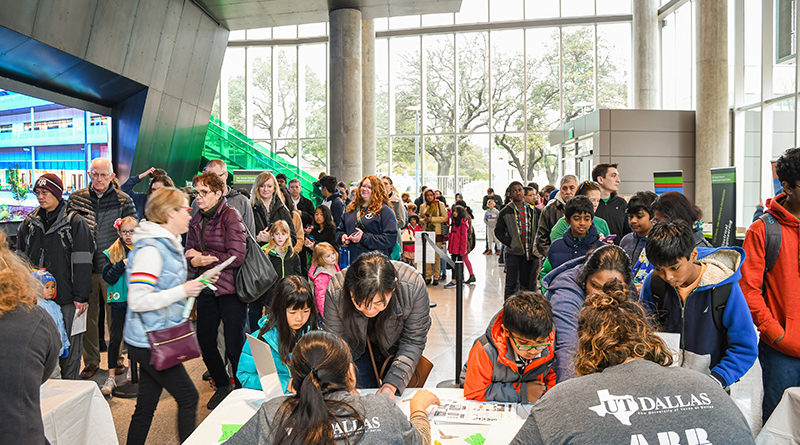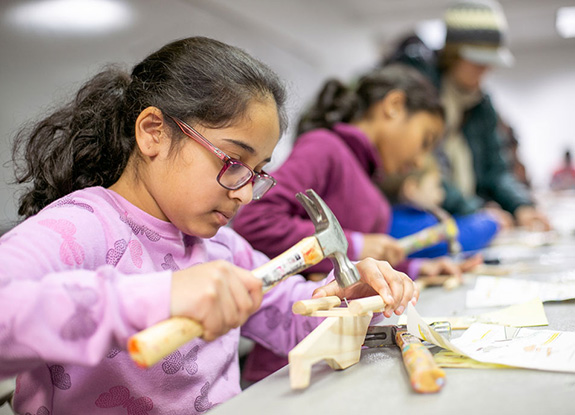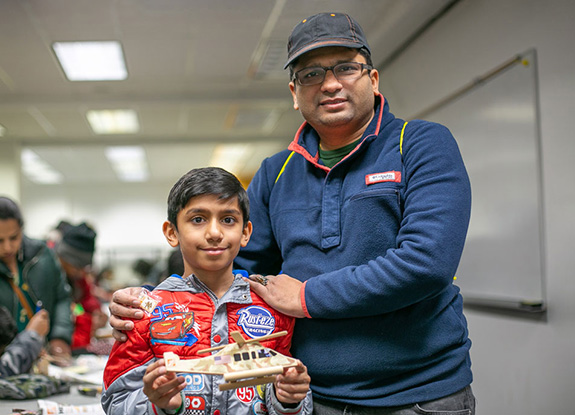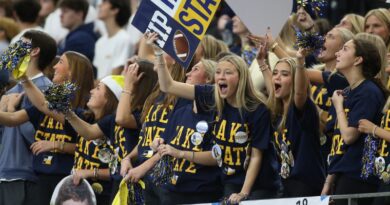UT Dallas Aims To Teach Younger Students, Too
By Liliann Albelbaisi
The University of Texas at Dallas, known for its programs for undergraduate and graduate college students, also aims to impact grade school students in the areas of science, technology, engineering art, and, mathematics (STEAM).
The Science and Engineering Education Center (SEEC) works with community partners and corporations to provide accessible learning opportunities meant to expand the knowledge of students in kindergarten through 12th grades.
UT Dallas wants to “teach kids how everyday life relates to math and science,” explained Lolani Connolly.
She has worked at the center since its founding in 2008 and served as its director since 2013.
Explore Engineering Day – one of the center’s most popular events co-hosted by UT Dallas’s Erik Jonsson School of Engineering and Computer Science and other groups – introduces children to how engineering helps everyday life and connects them with engineers so students can learn more about what engineers do for the community. Registration is free.
The day’s activities line up with courses taught at the university and are interweaved in current events, Connolly said.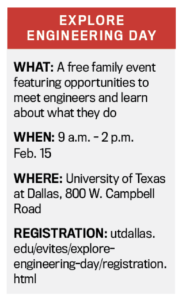
She described it as a powerful family event that caters to children’s passions and curiosity and helps parents figure out how to help their children succeed.
The university also works with event sponsors, student volunteers, and successful Dallas professionals to offer workshops and Techtalks.
Techtalks, offered for older students and organized by members of the Erik Jonsson School, feature professionals and professors who speak about the big problems and challenges the engineering world is facing at the moment.
“It’s important to educate the public about what we are doing in North Texas,” Connolly said. “Why not have those conversations with those kids early on?”
The center provides learning opportunities to more than 150,000 students a year.
Of those, “85% feel better informed about the roles engineers play,” she said. “What we are finding is that this is a critical part of the recipe: to experience math and science in the everyday.”

